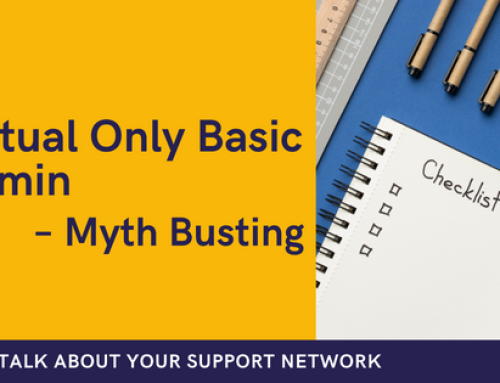Have you been wondering how to manage your remote team effectively? Maybe you’re looking to grow your first team and are looking to outsource a Virtual Assistant or copywriter? Or are you looking to move your in-house team into a more remote position?
In many ways, managing your remote team isn’t that dissimilar to managing an in-person one. They have the exact needs, and you have the same responsibilities. But it often comes down to being clear on your expectations and using the right tools for the job.
So if you’re looking to learn how to manage your remote team effectively, you probably already have many of the resources and answers you need. But just in case you need a little recap, here are ten key things to remember.
#1: Have weekly check-ins to manage your remote team effectively
These are essential not only for checking on progress but also for maintaining motivation and accountability. Look to record meetings for those who can’t attend, as it can ensure they’re kept in the loop with any changes and updates.
#2: Opt for visual communication for your weekly check-ins
Remote working can lead to a lonely working week. Video conference calls and generally seeing another person can help ease that loneliness and help them feel more connected with the team. But also be aware that many people are Zoom fatigued, so let them know it’s ok to turn off the screen and go audio-only if they prefer
#3: Set clear deadlines and expectations
You don’t need a massive list of expectations to help effectively manage your remote team. Implement core office hours to ensure team members are contactable and work when required. Also, agree on your preferred methods of communication and check-in requirements to help keep your team in touch with each other and you.
#4: Make use of online project management tools
There are great tools out there to help manage your team. Look to use an online project management tool, such as Asana, Trello or ClickUp, to help you manage your team’s progress and for your team members to manage their workload.
#5: Use online tools for communication and team management
It pays to have different tools for communication, as your team members will all have their preferred methods for keeping in touch. Tools such as Voxer or Slack are excellent ways to communicate and help keep your team connected – and they don’t jam up your inbox!
#6: Maintain accountability with your remote team
You must keep your team accountable. Again, check-ins and deadlines will help here but also have regular reviews. This lets your team know they have a platform to air any concerns about their workload, working patterns and any other issues they may have.
#7: Define transparent systems and workflows to manage your remote team
Look to standardise how things are done across your team. This makes it easier to replicate and pass work over to other team members if required and ensures uniformity in the work produced.
#8: Focus on achieved outcomes
Each person will have a different way of doing things, so try to focus on achieved outcomes, not the methods or strategies used. This helps give your team the freedom to work in their preferred style by focusing on the results they achieve.
#9: Show flexibility with your remote team
Working remotely is a choice many make for many reasons, so be considerate of those things. Their environment, home life or personal needs could have led to that choice, so show flexibility in those things. When you work from home, there is the potential for outside distractions and other factors to affect working patterns, so learn to be more accommodating to their needs.
#10: Be a mentor to your team
Let them know you’re there if you need them but that you trust them to do what you’re paying them to do. Encourage their growth and development inside and outside work and give them regular feedback. And most importantly, encourage health and wellness within your team. Think about how beneficial it would be to each team worker and the team as a whole if they had 30-day yoga challenges or book clubs and if they took a daily walk or were encouraged to have flexibility in their working hours and took decent breaks. Don’t be afraid to mentor them on those things that will benefit their health and general wellbeing.
Use the ten tips above to help you learn how to manage your remote team. Not only will they allow you to become a better manager, but they will also help your team to work more efficiently and effectively together – something that will benefit you, your team and your business as a whole.





